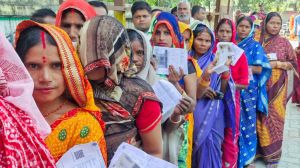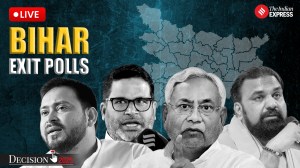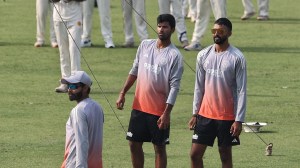Let Big B be
The Congress partys reaction is unseemly,and also dangerous....
The Congress partys response to Amitabh Bachchans presence at a Mumbai function is troublingly shot through with despotism. Upon receiving an official invitation,the actor registered his presence at the inauguration of the second phase of the Bandra-Worli Sea Link. The political controversy that has followed is unseemly,and in a way baffling.
Congress leaders have chosen to take exception to the invitation to Bachchan and,presumably,to his cordial interaction with Chief Minister Ashok Chavan. The official line is the party is upset over the partys welcome to an actor who recently called on Gujarat Chief Minister Narendra Modi and even agreed to promote tourism in that state. It is not,party leaders strain to say,personal. It is also speculated that Bachchan is just collateral victim of the Maharashtra Congresss internal politics. In any case,the upshot is that Chavan has undermined his leadership of a diverse state by conveying to the Congress high command that he was unaware of Bachchans possible attendance.
It is not just that this message that an icon of Hindi cinema be alienated by an incumbent government is misguided. It does not befit a democracy to get into the habit of diminishing the achievements,and thereby the stature,of its citizens on political considerations. These lines of untouchability also undermine the role civil society plays in a healthy democracy. Popular personalities,artists,businesspersons,activists populate and nurture a bipartisan middle ground even amidst the most partisan politics. Even as they interact engage,critique,applaud with those in politics,they are entitled to retain their unaffiliated status. It is important they do,because they are well-placed to facilitate a wider dialogue,and by extension more participative governance. The Congress carries an older legacy of inclusiveness. It must hold itself to those standards.



- 01
- 02
- 03
- 04
- 05




























